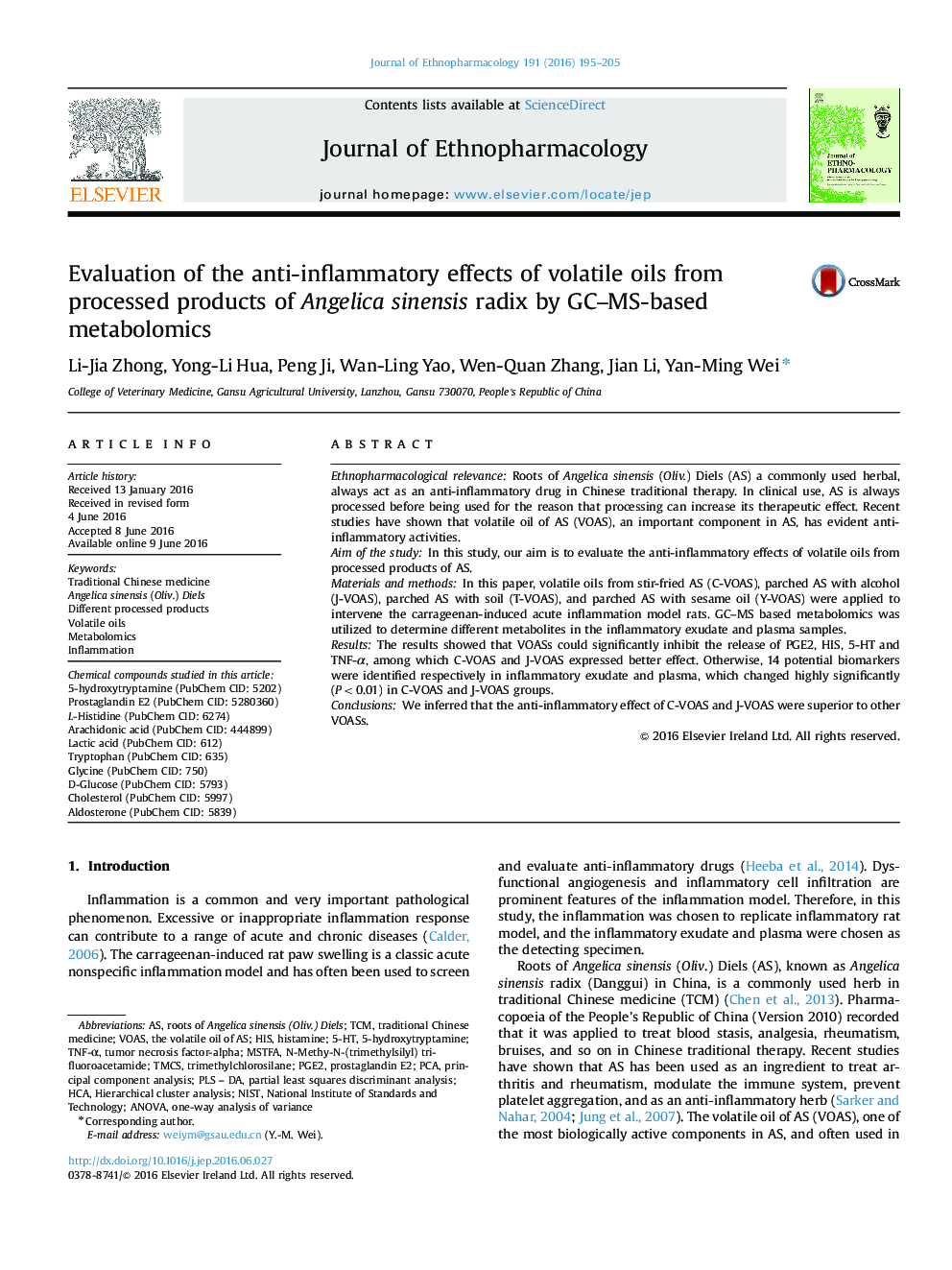| کد مقاله | کد نشریه | سال انتشار | مقاله انگلیسی | نسخه تمام متن |
|---|---|---|---|---|
| 2544585 | 1560371 | 2016 | 11 صفحه PDF | دانلود رایگان |

Ethnopharmacological relevanceRoots of Angelica sinensis (Oliv.) Diels (AS) a commonly used herbal, always act as an anti-inflammatory drug in Chinese traditional therapy. In clinical use, AS is always processed before being used for the reason that processing can increase its therapeutic effect. Recent studies have shown that volatile oil of AS (VOAS), an important component in AS, has evident anti-inflammatory activities.Aim of the studyIn this study, our aim is to evaluate the anti-inflammatory effects of volatile oils from processed products of AS.Materials and methodsIn this paper, volatile oils from stir-fried AS (C-VOAS), parched AS with alcohol (J-VOAS), parched AS with soil (T-VOAS), and parched AS with sesame oil (Y-VOAS) were applied to intervene the carrageenan-induced acute inflammation model rats. GC–MS based metabolomics was utilized to determine different metabolites in the inflammatory exudate and plasma samples.ResultsThe results showed that VOASs could significantly inhibit the release of PGE2, HIS, 5-HT and TNF-α, among which C-VOAS and J-VOAS expressed better effect. Otherwise, 14 potential biomarkers were identified respectively in inflammatory exudate and plasma, which changed highly significantly (P<0.01) in C-VOAS and J-VOAS groups.ConclusionsWe inferred that the anti-inflammatory effect of C-VOAS and J-VOAS were superior to other VOASs.
Figure optionsDownload high-quality image (273 K)Download as PowerPoint slide
Journal: Journal of Ethnopharmacology - Volume 191, 15 September 2016, Pages 195–205